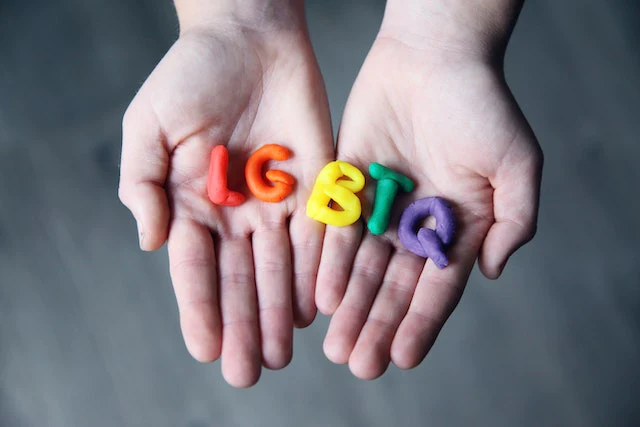Understanding The Transition of Healthcare in The LGBTQ Community

Understanding The Transition of Healthcare in The LGBTQ Community
People who identify as lesbian, gay, bisexual, transgender, queer, or questioning (LGBTQ) constitute a sizable and influential part of contemporary society. They work, attend school, and have families like everyone else. LGBTQ people encounter a variety of barriers while seeking medical care. In a 2009 research, it was found that more than half of LGBTQ individuals have experienced healthcare discrimination, including being denied care, receiving harsh or violent treatment, and being held responsible for their sickness. According to a 2015 follow-up research, no progress has been seen in treating transgender people. However, there is a need to understand LGBTQ individuals, especially during this pride month.
The history of lesbian, gay, bisexual
During World War II and the following years, lesbians and gay men experienced intense stigma. Despite the fact that several of them served in the military during the conflict, a sizable portion of them were relieved of duty when it was over. Given the potential for personal rejection, social exclusion, unemployment, and even incarceration in the event of public admission of one’s sexual orientation, confidentiality was needed in daily life.
Lesbians and gay males were categorized as having mental illnesses. Although methods claiming to modify sexual orientation were typically ineffectual, many were under pressure to seek psychological care to become straight. Likewise, growing gay and lesbian groups and enclaves in major cities allowed members to connect with people who shared their interests.
The opportunity to interact with people who have shared similar sexual orientations was also provided by newly forming gay and lesbian communities and enclaves in major urban areas. These groups served as a foundation for the growth of institutional and individual resistance against the stigmatized status of homosexuality.
Transgender history
As was already mentioned, early conceptions of sexual orientation closely correlated gender and sexuality. Many transgender individuals have been active members of the greater gay and lesbian community during the past century. The Stonewall Rebellion was heavily influenced by transgender people, and in the 1970s, they helped organize a more vibrant gay and lesbian community. However, the background of the transgender community differs from the LGB.
Throughout history, gender variation has occasionally been embraced and condemned as a feature of many societies and religions. Gender-bending, also known as dressing as another sex, was illegal in England by the end of the 17th century. This, therefore, laid the groundwork for American laws that are comparable today. Historical information on prejudice and violence against transgender people is scarce since those who cross-dressed were compelled to conceal their identities. However, individual reports record numerous incidents of assault, humiliation, intimidation, and the anxiety of someone being identified and killed because of their gender difference.
LGBTQ healthcare
Lesbian, gay, bisexual, and transgender (LGBT) people sometimes encounter difficulties and restrictions while trying to receive the necessary medical care, which can hurt their health. In addition to other obstacles like disparity in the place of work and health insurance sectors. LGBTQ individuals face different challenges, including outright hostility toward care due to their sexual orientation or gender identity.
Although LGBTQ people share some of those same health issues as the general population, they also encounter some more frequently and deal with several particular issues. For example, evidence indicates that some LGBTQ subgroups experience higher incidence and earlier onset of disability than heterosexuals and are more prone to suffer from specific chronic diseases. HIV/AIDS, mental disease, substance abuse, and sexual and physical assault are other significant health issues. Some LGBT people are more likely to encounter difficulties getting care, in addition to the greater incidence of disease and health issues. The stigma associated with particular groups’ lack of coverage, financial difficulties, and unfavorable treatment by healthcare professionals are some obstacles. And this is where 247labkit comes to your rescue as we offer a solution for your privacy concerns and embarrassment.
Healthcare and insurance for LGBT people and their families have recently improved due to several improvements in the legal and legislative environment. The Supreme Court’s decision in the United States v. Windsor to invalidate a significant portion of the Defense of Marriage Act (DOMA) and the subsequent ruling in Obergefell v. Hodges to legalize same-sex unions nationwide are among the most notable of these. The Affordable Care Act (ACA) was also passed. Even though recent efforts by the Trump Administration have pursued revoking some of these gains, the Affordable Care Act (ACA) expands access to health insurance coverage for millions of people, including LGBTQ people. It includes different rights related to sexual orientation and gender identity. The Supreme Court’s 2013 decision in DOMA led to the federal government’s first acceptance of same-sex unions and laid the groundwork for acceptance in many other states. The Supreme Court’s 2015 decision in Obergefell determined that the Fourteenth Amendment requires states to authorize same-sex unions and recognize such unions performed outside of their borders, further extending access and coverage nationwide.
Conclusion
Healthcare inequities for LGBTQ patients are common, but they shouldn’t be. Everyone has a right to good healthcare. 247labkit has the chance to alter the story: to lessen fear, surpass expectations, increase patient happiness, and enhance lives.